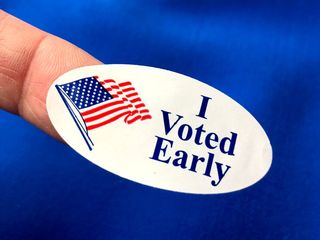- Sections :
- Crime & Public Safety
- Restaurants & Food
- Sports
- More
Categories
Let them eat Big Macs
McDonald's is under fire from the French government. This isn't a fight against obesity or American cultural encroachment—this time France wants tax dollars.
According to French newspaper L'Express, the French government is investigating allegations that McDonald's transferred 2.2 billion euros ($3.01 billion dollars) in income to companies in Luxembourg and Switzerland to avoid paying taxes on that money in France. France has similarly investigated Apple Computer, Microsoft, Amazon.com and Google in the past few years for making money in France through companies in nearby countries with lower tax rates.
Taxpayers must understand, however, that what these companies are doing isn't necessarily illegal. Our tax laws and government make it okay and accessible for companies to perform these tax transactions. Given the extent of its international operations—France is McDonald's second-biggest market—tax considerations are a huge part of its bottom line. You can bet McDonald's pays its attorneys, business consultants and CPAs handsomely for top taxation and economic counsel as it considers each foreign market. U.S. tax laws make overseas expansion attractive and accessible.
Today's companies operate in an ultra-competitive and unforgiving economic world. A corporation's biggest responsibility is to its board of directors and shareholders. Shareholders aren't known for their generous nature—if McDonald's can find millions of dollars in tax savings, it's expected to take them. Just as individuals consider the implications of their investments and income when it comes to personal income tax, tax considerations are key for multinational corporations.
We see small and medium-sized companies enter into business agreements, unknowing that professional tax and legal advice could have saved them from serious tax implications later.
It is often more economically efficient to expand and take work overseas, where foreign countries offer reduced operations costs and tax incentives. The opportunities are there, and, by all means, large corporations are going to go for them. Foreign countries such as France in this case may assume that their tax laws are being abused, simply because a company is paying less tax than the government thinks it should. Individuals may assume that McDonald’s is operating outside of the foreign country’s law. Oftentimes, the company under scrutiny is simply using tax laws efficiently. We may come to find that there is no tax law abuse going on…simply good business decisions being made based on all of the facts, circumstances and law.
Too often, we see small and mid-sized companies—and individuals—enter into business transactions without considering all of the relevant legal and tax ramifications of those transactions. Many times companies or individuals are unaware that those legal and tax issues even exist. This is where your trusted legal counsel, business consultants and CPA can be of immeasurable assistance to avoid additional taxes, penalties and interest. With the proper advice and consultation, companies and individuals can make the most efficient use of tax law. There's no need to leave tax savings on the table.
Elizabeth Hosea is with the tax accounting firm of Oman, Berry & Associates and can be reached at 832-562-2000.
According to French newspaper L'Express, the French government is investigating allegations that McDonald's transferred 2.2 billion euros ($3.01 billion dollars) in income to companies in Luxembourg and Switzerland to avoid paying taxes on that money in France. France has similarly investigated Apple Computer, Microsoft, Amazon.com and Google in the past few years for making money in France through companies in nearby countries with lower tax rates.
Taxpayers must understand, however, that what these companies are doing isn't necessarily illegal. Our tax laws and government make it okay and accessible for companies to perform these tax transactions. Given the extent of its international operations—France is McDonald's second-biggest market—tax considerations are a huge part of its bottom line. You can bet McDonald's pays its attorneys, business consultants and CPAs handsomely for top taxation and economic counsel as it considers each foreign market. U.S. tax laws make overseas expansion attractive and accessible.
Today's companies operate in an ultra-competitive and unforgiving economic world. A corporation's biggest responsibility is to its board of directors and shareholders. Shareholders aren't known for their generous nature—if McDonald's can find millions of dollars in tax savings, it's expected to take them. Just as individuals consider the implications of their investments and income when it comes to personal income tax, tax considerations are key for multinational corporations.
We see small and medium-sized companies enter into business agreements, unknowing that professional tax and legal advice could have saved them from serious tax implications later.
It is often more economically efficient to expand and take work overseas, where foreign countries offer reduced operations costs and tax incentives. The opportunities are there, and, by all means, large corporations are going to go for them. Foreign countries such as France in this case may assume that their tax laws are being abused, simply because a company is paying less tax than the government thinks it should. Individuals may assume that McDonald’s is operating outside of the foreign country’s law. Oftentimes, the company under scrutiny is simply using tax laws efficiently. We may come to find that there is no tax law abuse going on…simply good business decisions being made based on all of the facts, circumstances and law.
Too often, we see small and mid-sized companies—and individuals—enter into business transactions without considering all of the relevant legal and tax ramifications of those transactions. Many times companies or individuals are unaware that those legal and tax issues even exist. This is where your trusted legal counsel, business consultants and CPA can be of immeasurable assistance to avoid additional taxes, penalties and interest. With the proper advice and consultation, companies and individuals can make the most efficient use of tax law. There's no need to leave tax savings on the table.
Elizabeth Hosea is with the tax accounting firm of Oman, Berry & Associates and can be reached at 832-562-2000.
Comments •

















